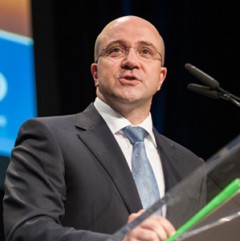by Bessa Whitmore, Academic Co-lead of CFICE’s Knowledge Mobilization (KMb) Hub
I first thought of knowledge mobilization (KM) as providing content to particular audiences. (For an academic, this usually means journal articles read by other academics.)
Attending the KM Forum (2013) really opened my eyes to a much broader vision of what KM can and should be. One presentation particularly stimulated my thinking: A talk by Bob Oliver (Executive Director of Pollution Probe (PP) Toronto), on PP’s evolution from a producer of educational content to schools (a series of Primers on Pollution) to a partnership building organization.
Below is a summary of his talk, which can be found on the Institutes for Knowledge Mobilization website in their KM Forum 2013 booklet (page 26).
“Bob Oliver spoke about the evolution of Pollution Probe from the late 1960s and 70s with a focus on what he calls tactics of “theatrics” to get media attention for informing the public to the development of more recent formalized educational content and campaigns.
He shared a series of publications with the group called Pollution Primers – several easy-to-read glossy books developed over the last decade to create greater public awareness of pollution problems. Bob referred to these Primers as ‘classical uninspired approaches’ as a one-way push of knowledge. Bob said, “the Primers had good quality content, but so what?” He says Pollution Probe never did anything to go beyond publication and incorporate knowledge mobilization techniques for greater knowledge exchange – until now.
After Pollution Probe began to ask the question, “why should energy literacy be important?” a series of workshops across Canada with input from a range of over 300 environmental experts lead to the next step in the evolution towards the application of knowledge mobilization principles… Pollution Probe began to move away from an exclusive content push to an evolution in developing a new platform of social engagement known as Energy Exchange. Through social media, systematic reviews and case studies, Pollution Probe has now evolved into a partnership building organization that fully integrates and applies knowledge mobilization principles.”
Bob Oliver’s talk was certainly enlightening, and reminded me that knowledge mobilization is about engaging in multi-directional conversations. As Bob reiterated in his presentation, if you can’t get beyond a one-way push of knowledge, then how will your work impact anyone’s lives? Knowledge mobilization plays an important role in bringing key stakeholders together to mobilize for action. It’s time to stop talking “at” or “past” each other, and instead start engaging “with” each other!
